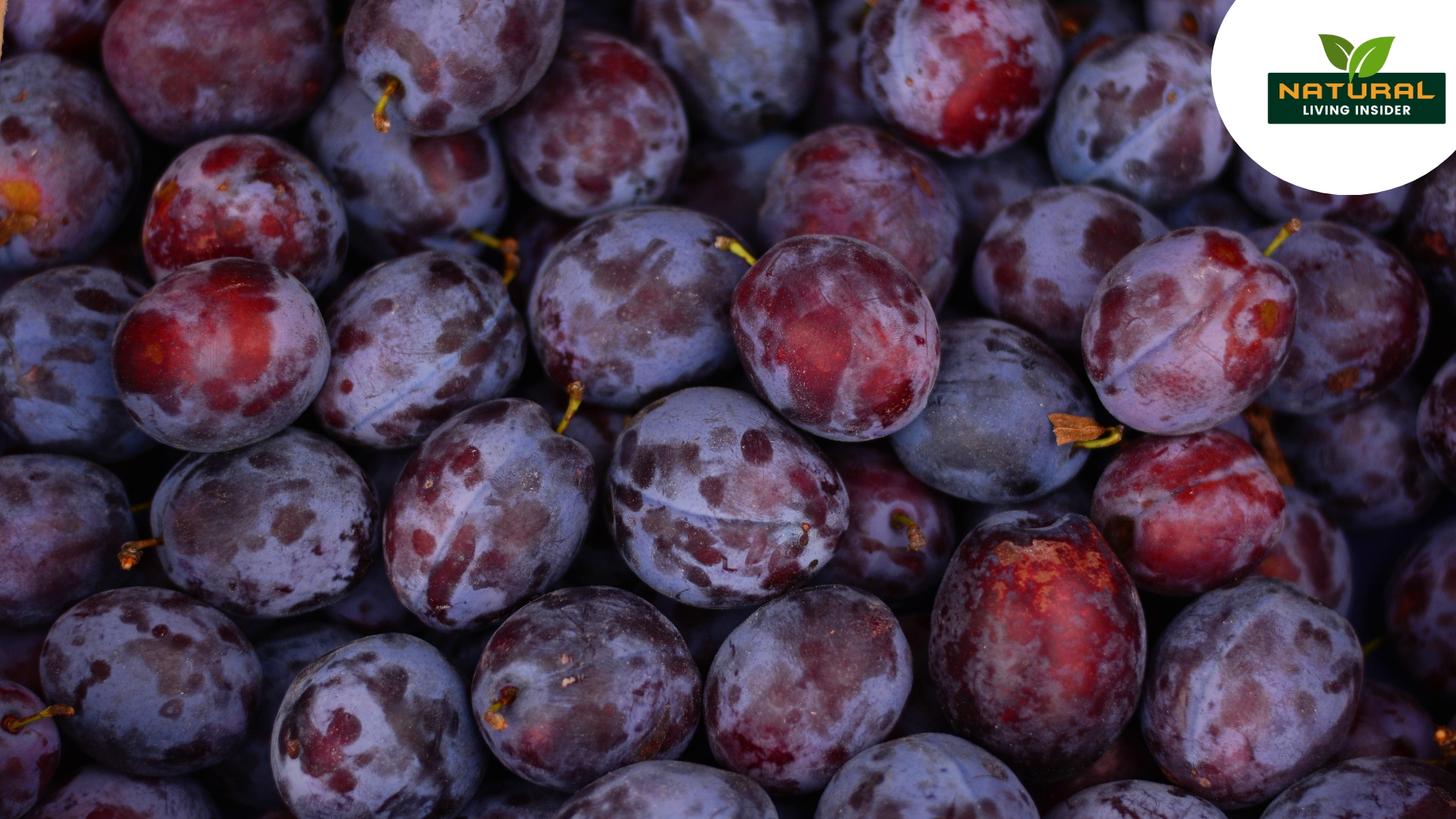
Plums are small, juicy fruits that come in a variety of colors — from deep purple to red and golden yellow. They are more than just sweet treats; plums are packed with powerful nutrients and medicinal compounds that can boost your overall health. But like any food, they come with a few caveats too.
Let’s dive deep into the nutritional profile, health benefits, and potential risks of including plums in your diet.
Table of Contents
Nutritional Facts of Plums (Per 100g)
| Nutrient | Amount |
|---|---|
| Calories | 46 kcal |
| Carbohydrates | 11.4 g |
| Sugars | 9.9 g |
| Dietary Fiber | 1.4 g |
| Protein | 0.7 g |
| Fat | 0.3 g |
| Vitamin C | 9.5 mg (16% DV) |
| Vitamin A | 345 IU (7% DV) |
| Vitamin K | 6.4 mcg (8% DV) |
| Potassium | 157 mg |
| Magnesium | 7 mg |
| Iron | 0.17 mg |
*DV = Daily Value based on a 2,000-calorie diet.
Plums are low in calories but rich in antioxidants, vitamins, and minerals, making them an excellent addition to your daily fruit intake.
Health Benefits of Plums
1. Rich in Antioxidants
Plums contain powerful polyphenols, especially anthocyanins, which help reduce oxidative stress. These antioxidants combat free radicals and may protect against heart disease and cancer.
2. Supports Digestive Health
Plums are high in dietary fiber and sorbitol, a natural sugar alcohol that acts as a mild laxative. They help regulate bowel movements and prevent constipation. Dried plums (prunes) are even more effective.
3. Promotes Heart Health
Thanks to potassium and fiber, plums may help lower blood pressure, reduce LDL cholesterol, and improve overall heart function. Their anti-inflammatory properties also reduce the risk of atherosclerosis.
4. Regulates Blood Sugar
Despite being sweet, plums have a low glycemic index. The fiber content helps slow sugar absorption, making them a smart fruit choice for people with type 2 diabetes or insulin resistance.
5. Boosts Immunity
Plums are a good source of vitamin C, which boosts white blood cell production and strengthens the immune response. Regular consumption may reduce the duration and severity of colds and infections.
6. Supports Bone Health
Dried plums contain compounds like boron and vitamin K that support bone density and reduce the risk of osteoporosis, especially in postmenopausal women.
7. Improves Skin Health
Antioxidants in plums help protect the skin from aging and environmental damage. Vitamin C promotes collagen production, keeping the skin firm and youthful.
8. Aids in Weight Management
Low in calories and high in fiber, plums help you feel full longer, reducing unnecessary snacking and aiding in weight loss.
Possible Risks and Side Effects of Eating Plums
While plums are generally safe, there are some situations where caution is advised:
1. May Cause Digestive Discomfort
Eating too many plums (or prunes) can lead to bloating, gas, or diarrhea due to their high fiber and sorbitol content.
2. Sugar Content
Although natural, plums are high in sugar. Overconsumption can spike blood sugar levels, especially in people with diabetes.
3. Allergic Reactions
Rarely, plums may cause allergies in some individuals — leading to itching, swelling, or difficulty breathing.
4. Oxalate Content
Plums contain oxalates, which can contribute to the formation of kidney stones in susceptible individuals.
5. Interaction with Medications
Due to their high vitamin K levels, plums might interfere with blood-thinning medications like warfarin. If you're on such medications, consult your doctor.
How to Include Plums in Your Diet
-
Eat them fresh as a snack
-
Add to fruit salads, yogurt, or smoothies
-
Bake them into tarts, pies, or cakes
-
Use dried plums (prunes) in cereals or savory dishes
-
Make plum chutneys or sauces
Tip: Choose ripe plums with smooth skin and a slight give when pressed. Store in the fridge and wash before eating.
Plums are a nutritional powerhouse wrapped in a delicious, colorful skin. They are good for your heart, digestive system, immunity, and even your bones. But like all good things, moderation is key.
If you’re looking to improve your diet naturally, adding a few plums to your daily routine can be a sweet and smart move.


